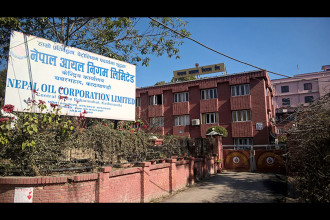
A recent UNESCAP disaster risk-focused report has identified trans-boundary river basins in South Asia as disaster hotspots. One such area in the Hindu Kush Himalayan region is the Koshi basin. Covering approximately 75,000 km square across the borders of China, India, and Nepal, the Koshi basin directly supports over 40 million people and hosts a rich biodiversity. It is, however, also highly prone to disasters – glacial lake outburst floods (GLOFs), landslides, and floods, among others – that are trans-boundary in scale and have trans-border implications. There is also a gap between research, policies and its implementation on disaster risk reduction. As climate change is expected to exacerbate extreme weather events in the region, developing plans and policies with the future outlook become critical. Thus collaboration between upstream and downstream communities as well as different sectors for evidence based planning for disaster risk reduction is needed for the Koshi Basin.
Against this backdrop, a two-day country level consultation, titled “Koshi Disaster Risk Reduction Knowledge Hub (KDKH) Nepal country consultation: Building a resilient Koshi basin”, was organised on September 23–24 in Kathmandu to bring together representatives from the government, public, private, and development sectors in Nepal and discuss strategies to improve disaster risk reduction (DRR) within the Koshi basin. The KDKH aims to strengthen a basin perspective while creating space for interaction between researchers, policy makers, and practitioners for informed policy making. This KDKH country consultation in Kathmandu marked an important milestone by bringing forth Nepal’s perspectives on DRR-related challenges, issues, and good practices in the basin that can contribute to improved trans-boundary collaboration.
“The National Planning Commission supports the formation of the country chapter for the KDKH,” asserted Dil Bahadur Gurung, Member of National Planning Commission.
Speaking during the country consultation, Shambu Regmi, Chief of the National Operation Emergency Centre at the Ministry of Home Affairs, highlighted the Disaster Risk Reduction National Strategic Plan of Action (2018–2030), which has defined priority actions for comprehensively understanding disaster risks and improving collaboration.
The Nepal country consultation was organised by the Koshi Basin Initiative (KBI) at ICIMOD, in collaboration with the National Planning Commission. It was supported by the Central Department of Hydrology and Meteorology (CDHM), Tribhuvan University; Disaster Preparedness Network – Nepal (DpNet-Nepal); the International Water Management Institute (IWMI); Lutheran World Relief (LWR); UNDP; and the United Nations Children’s Fund (UNICEF). A similar national stakeholder event was held in Bihar, India, in July 2019. Each country chapter is expected to share its progress and discuss challenges during the Annual KDKH Dialogue, scheduled to be held in December 2019 in Kathmandu.


-1772534372.jpeg)

-1772527494.jpeg)
